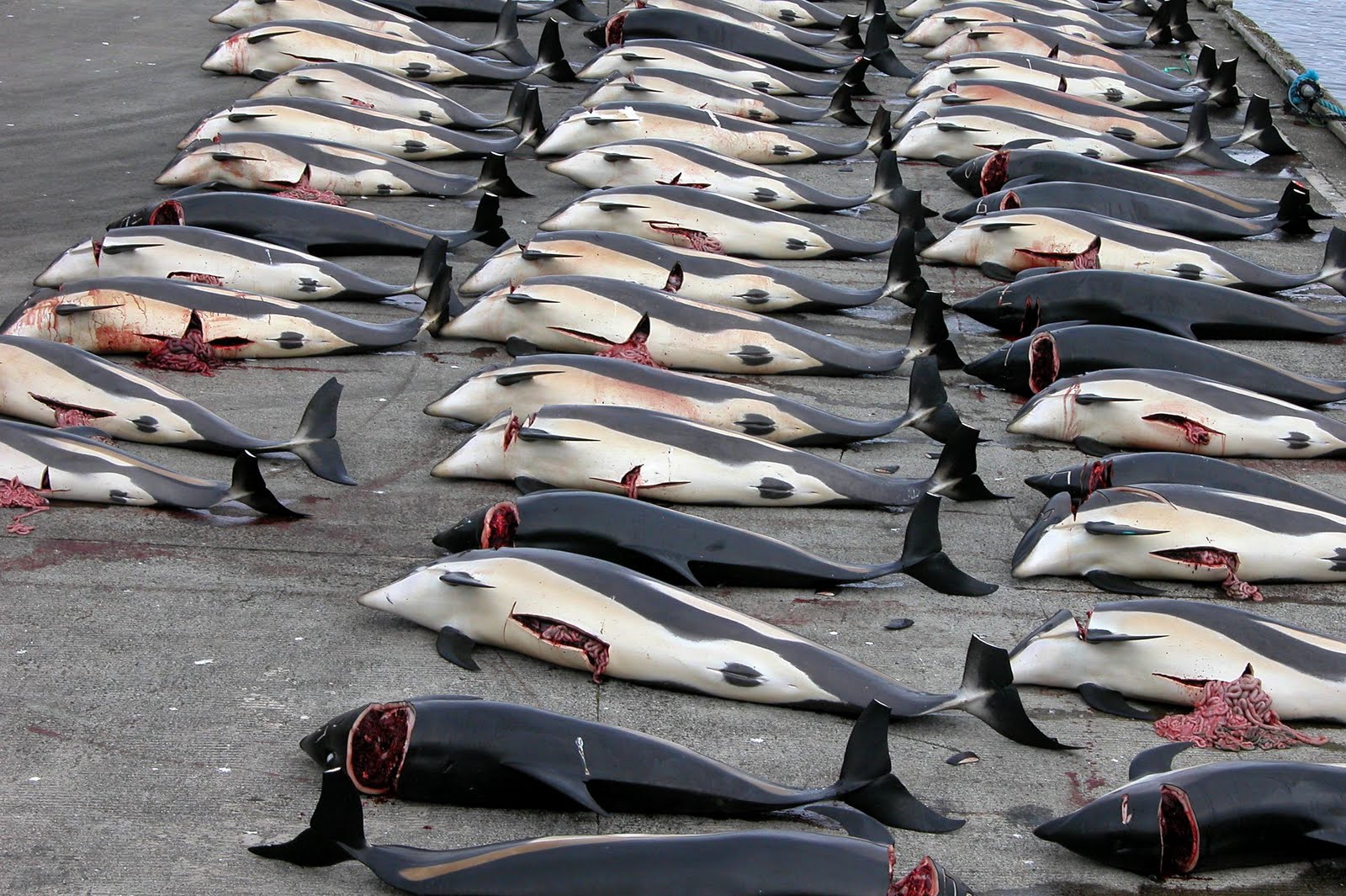
Common resources are recognized as needing protection from abuse and over-consumption. The abuse of common resources is known as the Tragedy of the Commons and has been explored by environmentalists and libertarians alike. Today, many people believe that the best methods to achieve these goals of protection and preservation are government regulation. While this appears a productive method to prevent the resources from exploitation, it is less than efficient, and generally agreed to be immoral by the exclusion of voluntarism in individual interactions and exchanges. Let's take the whaling industry and fossil fuels as an example, a simple one at that.
Before fossil fuels, there was whale oil. Used most commonly for fueling lamps to light homes, it was the most affordable source to meet that market need. While anyone can see the actions of whalers as violent and aggressive toward a species other than our own, hunting is a way of life for many around the world. Calling for an outright ban on any action will only drive that action into black markets, but will not causes that action to cease. It will drive costs to consumers to rise, however. And that increased potential profit encourages producers to deliver services and goods despite regulations and bans. Look at any service or product the government regulates or has labeled illegal and you will find the trade flourishing. Prohibition has always been an avenue of failure, it takes many forms, but so many continue to be drawn to the flawed concept like moths to a flame. It might be funnier if it were not so true.
The effect of mass harvesting of whales for their oil was the decline of their numbers, something that both those in the industry at the time and modern tree-hugging environmentalists alike can recognize. As their numbers declined, costs rose. This is a very basic economic principle. As prices rose, entrepreneurs looked for alternatives to whale oil which could meet consumers needs at a lower cost. This was a natural effort without government intervention. Laws that protected whales from harvesting did not come about until well into the second half of the 1900s, like 1973's Marine Mammal Protection Act. In fact, in 1851, a French law actually encouraged the hunting of whales. As usual, government regulators are late to the party, passing laws after the economic or environmental damage is already done.
Fossil fuels displaced whale oil, but the transition from whale oil as fuel to fossil fuels happened without interventionism, through the free market and Adam Smith's Invisible Hand. Whale oil costs were rising and producers were seeking a more affordable alternative. By the 1840s, kerosene had already begun to replace whale oil as an illuminant. This decreased it's demand and lowered it's cost, but kerosene was significantly cheaper and did not require the industry to kill whales. This was the beginning of the decline of the whaling industry, but was such a significant decrease in demand that laws which came over a century later did little more than recognize the position of animal rights proponents who showed up with legislators well after the party was already over, not surprisingly.
Moving into the future, without intervention into energy markets by governments, consumers and producers will shift from fossil fuels to new sources over time as well. Fossil fuels are finite resources, meaning that there are limits to the long-term viability. Eventually, there may not be enough oil or coal to run internal combustion engines or fire coal plants to generate electricity. The problem with government interventionism is that it ends up promoting the wrong choices (or sometimes simply at the wrong time) when markets will promote the best choice naturally.
In time, we may have electric cars juiced up by wind farms, solar arrays that power office complexes on independent grids, geothermal home heating systems, tidal generators, and other renewable energy sources which are also environmentally friendly. As long as the free market is allowed to function at it's greatest naturally efficient level, the transition will be as simple as using kerosene to light homes instead of whale oil. Simply let the Invisible Hand guide us to a more efficient alternative.
No comments:
Post a Comment